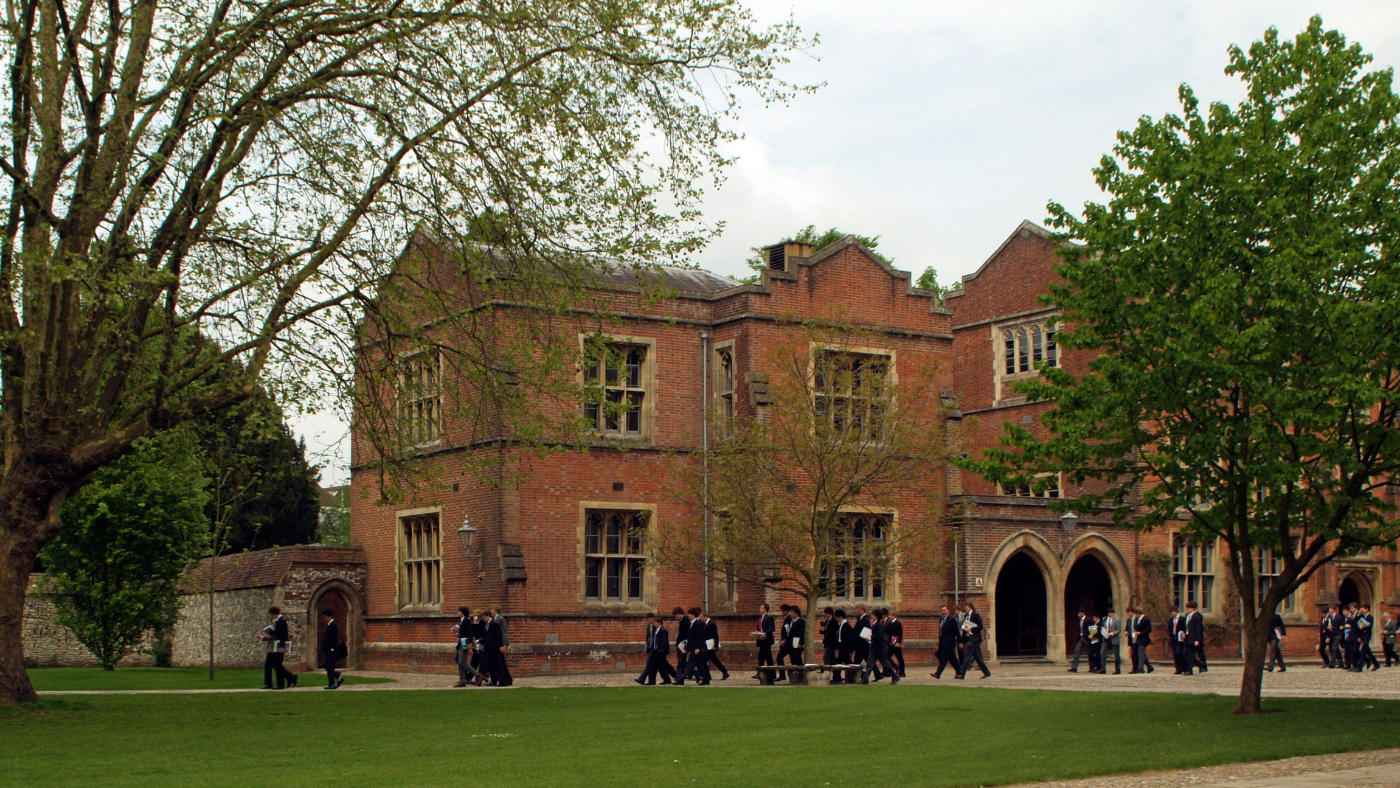Prime ministers and private schools
Cutting education budgets could be ‘difficult’ for Sunak given the cost of his children’s schools

A free daily email with the biggest news stories of the day – and the best features from TheWeek.com
You are now subscribed
Your newsletter sign-up was successful
Rishi Sunak’s route to Downing Street is strikingly similar to that taken by a significant number of his predecessors.
“Like many prime ministers before him” Sunak attended “an elite private school”, said The Washington Post. With annual fees of more than £45,000, Winchester College has “produced no fewer than six chancellors of the Exchequer”, said Study International. And of Britain’s 57 prime ministers, 20 – including Boris Johnson – were educated at Winchester’s rival, Eton, according to the BBC.
‘Private school problem’
“Posh boys reign supreme in a society where two years ago, eight elite schools (six private and two state) sent more pupils to Oxford and Cambridge than almost 3,000 other UK state schools,” said Fiona Millar in The New European in March.
The Week
Escape your echo chamber. Get the facts behind the news, plus analysis from multiple perspectives.

Sign up for The Week's Free Newsletters
From our morning news briefing to a weekly Good News Newsletter, get the best of The Week delivered directly to your inbox.
From our morning news briefing to a weekly Good News Newsletter, get the best of The Week delivered directly to your inbox.
Analysis published by the Sutton Trust in 2019 found that 29% of MPs at the time had attended a private school. Of Conservative MPs, 41% had attended an independent school, in comparison to Labour’s 14%.
“Money matters,” Millar continued. “Through intensive university preparation, outlandish uniforms, networks, the use of absurd language like spaffing and girly swot, or the sense that they are grooming leaders, the system is designed to ensure that pupils emerge feeling better than, and different from, everyone else.”
On his website, Sunak said: “My parents sacrificed a great deal so I could attend good schools.” His “self-confidence and polish” were “exactly what his parents hoped they were buying when they saved up to send him to Winchester”, said The Guardian.
The PM himself may have “a private school problem”, said Paul Waugh, the i news site’s chief political commentator. It’s “not so much that he went to a very expensive public school, but that he clearly doesn’t rate the state system as good enough for his own children”.
A free daily email with the biggest news stories of the day – and the best features from TheWeek.com
With his elder daughter attending a £40,000-a-year boarding school and the other a £23,000-a-year preparatory school, “cutting education budgets further in those circumstances may be difficult indeed”, said Waugh.
‘Social apartheid’
Much was “made of the apparent ‘diversity’” of Liz Truss’s cabinet, but what was less commented upon was that it was “one of the most socially exclusive cabinets in recent history”, said Byline Times.
Research published by the Sutton Trust last month found that 68% of Truss’s secretaries of state had attended fee-paying schools, with the trust’s founder and chairman Sir Peter Lampl commenting on “how unevenly spread opportunities to enter the most prestigious positions continue to be”.
The charity’s research indicates that the proportion of privately educated cabinet members has increased in recent years, with the numbers more than doubling during Johnson’s premiership to 64% compared to Theresa May’s 30%.
“The past decade has given us a relentless insight into this very sophisticated form of social apartheid that private schools represent,” said Millar.
She called for “sanctions on this type of privilege before another generation of that tiny but powerful elite comes along to do even more damage to the country”.